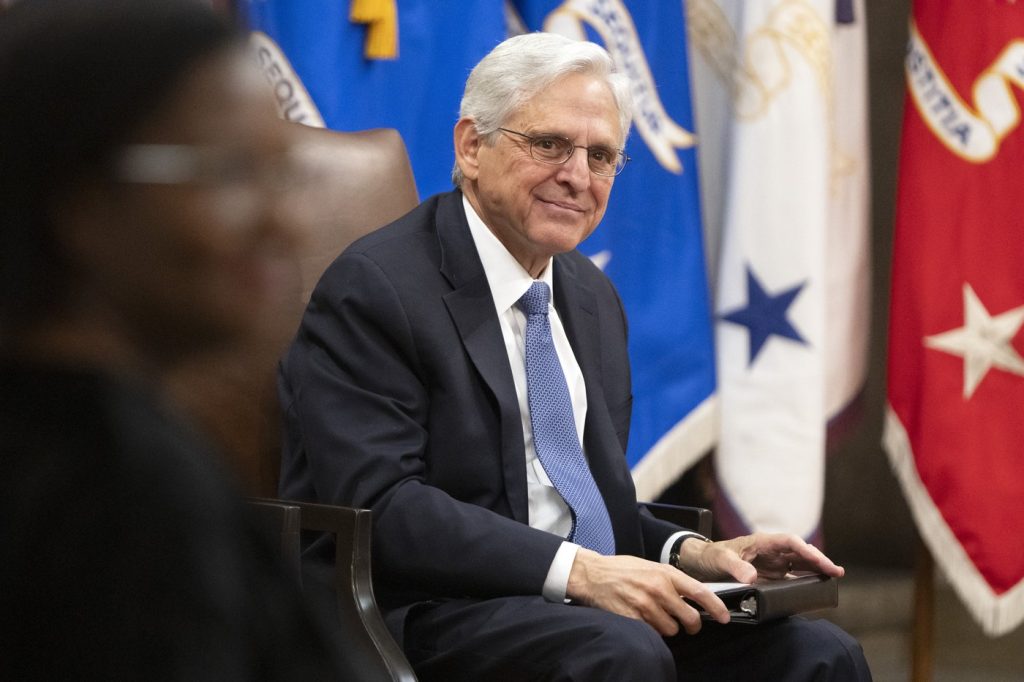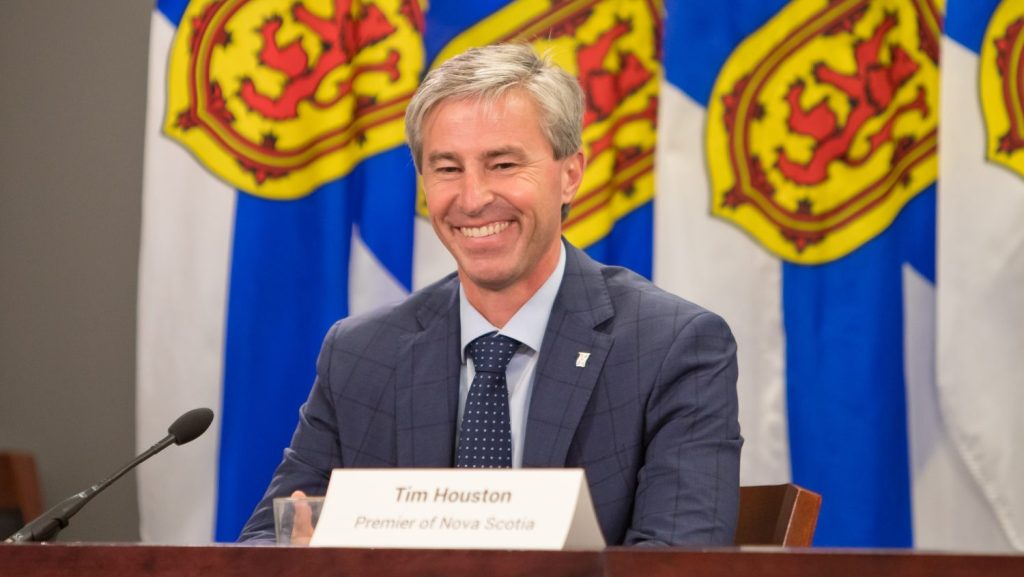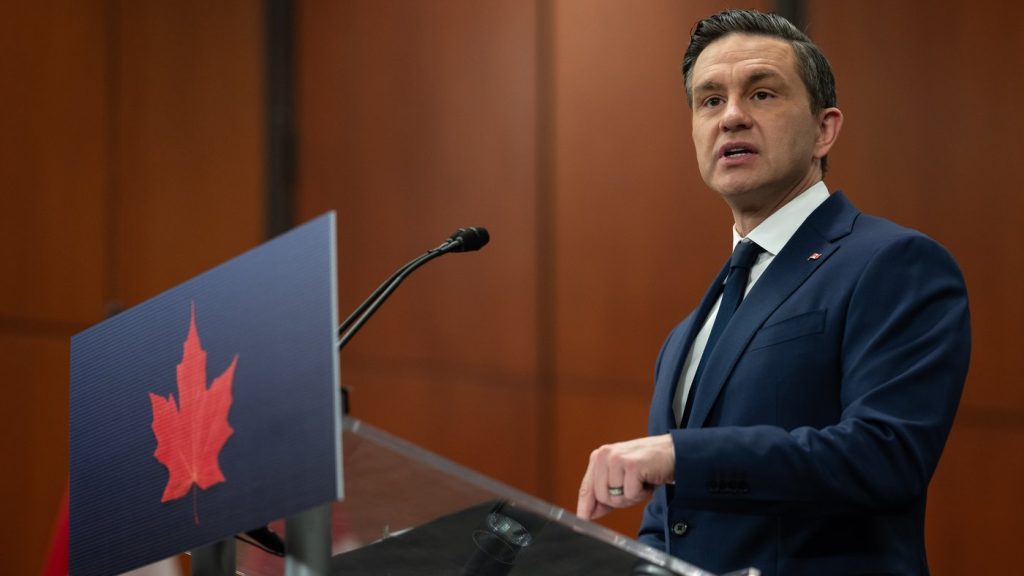Merrick Garland exits with his record under scrutiny and the Justice Department bracing for upheaval

Posted Jan 18, 2025 10:10:20 AM.
Last Updated Jan 18, 2025 10:15:25 AM.
WASHINGTON (AP) — During hearings on Merrick Garland’s nomination to be President Joe Biden’s attorney general, the longtime federal appeals court judge told senators in 2021 that he hoped to “turn down the volume” on public discourse about the Justice Department and return to the days when the agency was not the “center of partisan disagreement.”
It didn’t go as planned.
Garland came in with a mission to calm the waters and restore the department’s reputation for independence after four turbulent years under Republican President Donald Trump, who fired one attorney general and feuded with another. Now, the soft-spoken Garland, who was denied a seat on the Supreme Court by the Republican-led Senate, is leaving this month with the department under siege and his own legacy in question.
Those on the right are incensed over the department’s effort to hold Trump criminally responsible for his failed effort to overturn his 2020 election loss and have accused prosecutors of going too easy on Biden’s son Hunter. Democrats have claimed Garland failed to pursue Trump aggressively enough immediately after the Capitol riot on Jan. 6, 2021, and have criticized the Garland-appointed special counsel, who, they thought, took gratuitous swipes at Biden.
Some senior Biden aides have said privately that Garland was the wrong choice for the job and they believe he bent too far trying to show impartiality.
Garland’s defenders say that despite the political pressures, he stood firm in his commitment to independence and fairness.
“The story that has been told by some outside of this building about what has happened inside of it is wrong,” Garland told employees Thursday during an emotional farewell address inside the Justice Department’s Great Hall. “You have worked to pursue justice — not politics. That is the truth and nothing can change it.”
From judge to the Justice Department
Garland was the chief judge on the U.S. Court of Appeals for the District of Columbia Circuit, when he was nominated by President Barack Obama for the high court in March 2016.
A Justice Department lawyer who worked under five attorneys general, Garland had burnished his reputation as a hard-charging prosecutor supervising the case against Timothy McVeigh for the 1995 Oklahoma City bombing that killed 168 people. Garland has called his work on the investigation “the most important thing” he has ever done.
On civil rights matters, the Justice Department under Garland undertook a dozen investigations into law enforcement agencies, uncovering widespread misconduct — work that had been curtailed under Trump’s first term. The department was also aggressive in its antitrust enforcement, bringing cases against Google, Apple and others.
But the confluence of investigations on his desk at once presented arguably the biggest test in the Justice Department’s 150-year history.
Political investigations swirled, especially around the Capitol riot
The department, at one point, was investigating Joe Biden for his handling of classified documents, Hunter Biden for tax and gun offenses, and Trump — the president’s chief political rival. To do this, Garland appointed special counsels in an effort to remove any whiff of political bias.
Yet no event shaped Garland’s tenure more than the Capitol riot, which unfolded on live TV on the same day news broke that Biden had picked Garland for the job.
By the time Garland assumed the job in March 2021, the Justice Department had begun charging rioters, building what would become its largest-ever investigation.
Long before Jack Smith was appointed as special counsel for the Trump investigations, the department in 2021 launched an investigative unit looking at Trump allies who were at Washington’s Willard Hotel around Jan. 6, 2021. Investigators searched for financial ties between Trump allies and the rioters — believing that would allow them to bring a more straightforward case. But that hit a dead end.
The Supreme Court tied up Smith’s case for months before granting former presidents broad immunity from prosecution and sending the case back to the trial court. It likely would have gone back to the high court at least once before it could reach trial, making a trial before November’s election unlikely.
Some in the White House sour on the attorney general
Inside the White House, frustration mounted over Garland. Biden felt hemmed in by his choice, particularly as the Justice Department investigated both him and Hunter.
White House officials were particularly dismayed at special counsel Robert Hur’s report on his investigation into Biden’s handling of classified documents. That report portrayed the president as a “well-meaning elderly man with a poor memory,” and White House officials said it was inappropriate to include such “prejudicial” language in a report explaining why no criminal charges were warranted.
The report was released just as Biden’s age (he turned 82 in November) and mental acuity were becoming major political liabilities that would eventually, following his disastrous debate performance in June, sink his reelection effort.
By releasing the entire unedited document, Garland reflected his determination not only to avoid the appearance of protecting the president but also to turn the page from his predecessor. William Barr was castigated by the left after he issued his own four-page summary of special counsel Robert Mueller’s report on Russian election interference that was seen as glossing over some of the document’s more damning assessments.
The unraveling of years of work
Garland is about to see years of work dismantled.
The cases against Trump have unraveled. The Justice Department has decided to withhold from the public for now the section of Smith’s final report on Trump’s classified documents case because an appeal involving Trump’s co-defendants is pending. It’s possible that it will never be released by Trump’s Justice Department.
The future of the Jan. 6 investigation, which has resulted in more than 1,200 convictions against rioters, is in peril. Trump has said he plans to pardon many of them.
Biden, too, pardoned his son after Hunter’s trial conviction and guilty plea.
In his final speech to the workforce, Garland made no overt mention of Trump or the president-elect’s suggestions that he might use the agency’s powers to pursue his foes. But Garland warned that “the same powers that enable the federal prosecutor to pursue justice also create the potential for grave injustice.”
___
Alanna Durkin Richer, Eric Tucker And Colleen Long, The Associated Press








